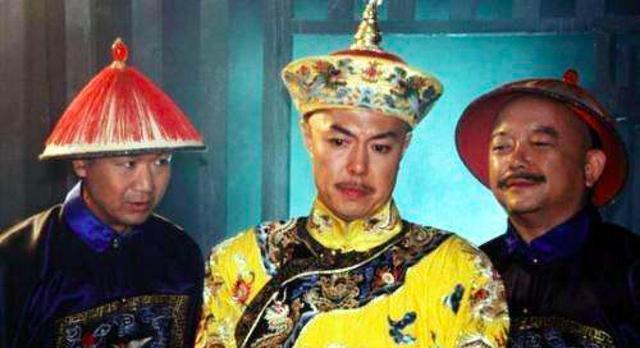They were all big red people around the Qianlong Emperor, so why did He Yan call them 'slave talents'' and Ji Xiaolan called them 'subjects'?
As the Qing Palace drama became more and more popular, I don't know if you found a problem, that is, among the Qing officials, some of them were called 'slaves' in front of the emperor, and some of them were called 'subjects' in front of the emperor. Especially in the hit drama "Iron Tooth Copper Tooth Ji Xiaolan", He Yan and Ji Xiaolan are both big red people around the Qianlong Emperor, and their status is also more important, but when meeting the emperor, He Yan calls himself "slave talent", while Ji Xiaolan calls it "subject", why is this?

"Slave" is a very ironic and derogatory word in modern use, and the word "subject" is relatively speaking, which is much more neutral and mild, and in the impression of many people, "subject" has more social status than "slave". However, in the reality of the Qing Dynasty, the representative meanings of these two words are diametrically opposed. In Lu Xun's book "Diaphragm", it was described that the Manchus actually had a strict master-slave relationship between them, and all Manchu ministers who played things must be called ''slaves'' in front of the emperor, and compared with Han Chen, they could be directly called ''subjects''. This is not because of the preferential treatment of "Yanhuang Guiguan", but because in the eyes of the Manchus, "slave talent" is more superior to "subject".
And during the reign of the Qing Dynasty, its imperial rulers always maintained a very serious wariness of Han officials, so they exchanged strict boundaries between Manchu and Han ministers, and the self-designation mentioned above was one of the strictly stipulated ranges, unless some Han ministers were given Manchu citizenship by the emperor for a certain merit, and the villagers could only call themselves 'slaves' in front of the emperor, no matter how high the official rank, han ministers could only call themselves ''subjects'.'
If any Han ministers did not pay attention and called themselves "slaves", they would not only be severely reprimanded, but even the possibility of cutting off officials and deposing knights, because in the eyes of the Rulers of the Qing Dynasty, this was not only the privilege of Manchu ministers, but also one of the ways to show closeness, and as a Han official, after all, he was an outsider, and he did not deserve this honor.
Such an interesting incident occurred in 1773, when a serious fraud case broke out in the Qing Dynasty, the Qianlong Emperor ordered that the Manchu Tianbao and the Hanchen Ma Renlong jointly investigate and deal with the fraud case, and in the submission, the Hanchen Ma Renlong may have been sloppy and careless, and even called it "Slave Talent" together with The Qianlong Emperor was furious after seeing it, and severely rebuked the Hanchen Ma Renlong, and dared to call himself "Slave Talent" without authorization, which was really against the courtesy of the monarch. However, after the angry rebuke, Qianlong thought about it carefully, and in order to avoid the recurrence of this matter, he finally decided to abolish this provision and reset the new law: all the subordinates of the Qing Dynasty, and those who did not have a full Han, were all called "subjects" in the official affairs.
From this incident, we can see that in the eyes of the Rulers of the Qing Dynasty, they preferred the Manchus to eventually call themselves 'subjects' rather than allow the Han to call themselves "slaves".
He Yan and Ji Xiaolan are both red people around Qianlong, why is one called "slave talent" and the other is called a subject?